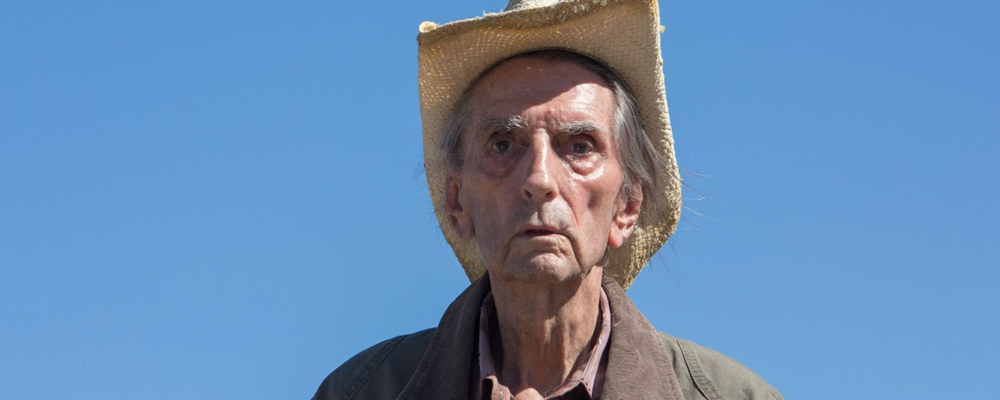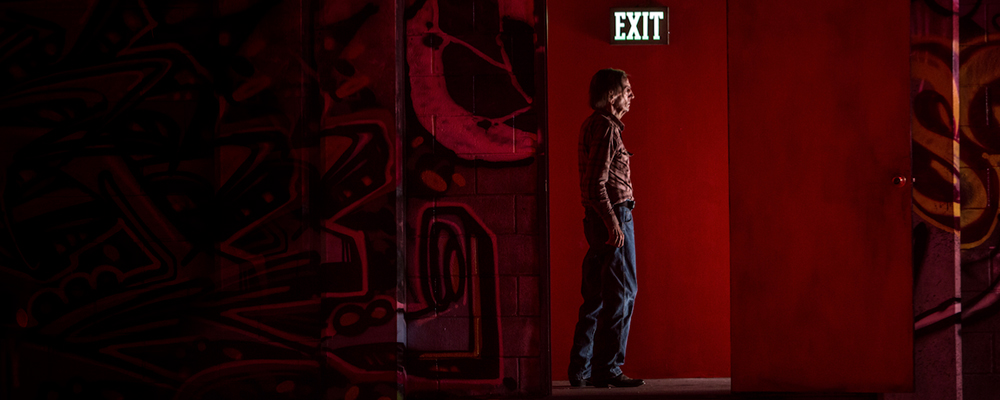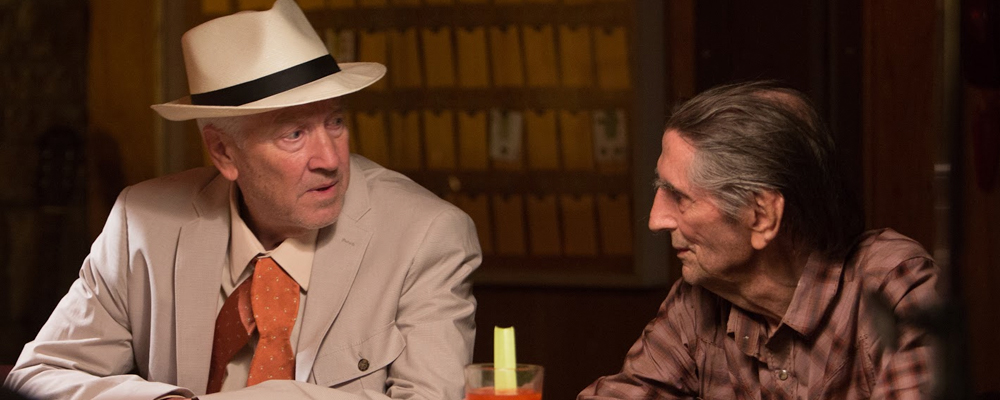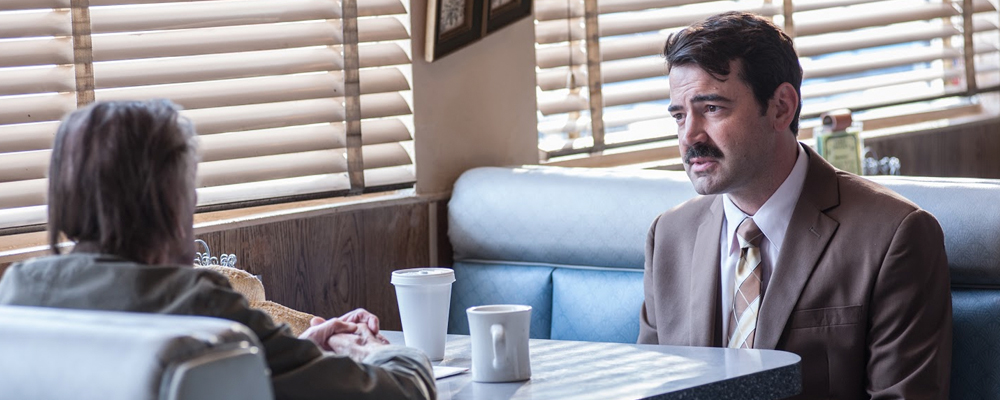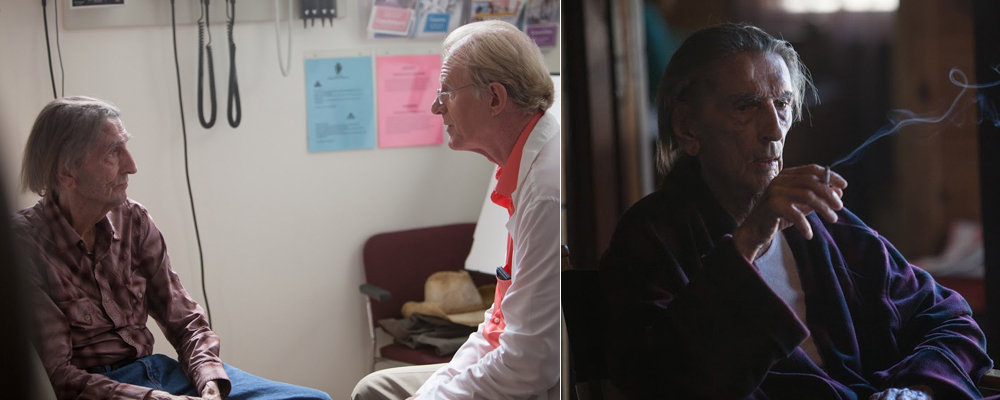John Carroll Lynch Talks ‘Lucky,’ Directing Harry Dean Stanton and ‘American Horror Story’
Sandra Miska
Just a few weeks after the death of beloved actor Harry Dean Stanton at age 91, one of his final films, “Lucky,” will arrive in theaters. Stanton stars as the title character, whose development was heavily influenced by the actor’s own life and worldview, making the drama a swan song of sorts for the actor whose first came to prominence 50 years ago in “Cool Hand Luke” before going on to appear in other classic films such as “The Godfather Part II,” “Alien,” and “Pretty in Pink,” as well as the series “Big Love” and “Twin Peaks” (2017).
“Lucky” is the directorial debut of veteran character actor John Carroll Lynch, who was approached by writers Logan Sparks and Drago Sumonja after Stanton was already attached in what Lynch describes as “an arranged marriage.”
“I loved that this was a movie about a man who maybe he is facing his mortality for the last time, and he doesn’t have a safety net of faith to think there’s a second act, so the drama is pretty high for him in those circumstances,” Lynch revealed to “Entertainment Voice” when asked what attracted him to the project, besides the chance to direct Stanton,
With Stanton’s passing so recent, Lynch at times during the interview couldn’t help but speak of the actor in present tense. “He goes into any project with the assumption that he’s only playing Harry Dean Stanton, and in this case it was to some degree true because it was inspired by him, but also it was also necessary to create the character of Lucky, that was a completely different context,” he said of the process of incorporating the real Stanton into the film while also bringing to life a fictional character.
While the character of Lucky is different in some ways – He lives in a small desert town in a modest house – He also shares some of Stanton’s characteristics, such as a love for yoga, game shows, and crossword puzzles, as well as a past as a Navy man in World War II. We also hear stories from Lucky’s childhood taken from Stanton’s own life, such as an affecting story involving a mockingbird. There’s also his atheism. For Lucky, this means instead of looking to an afterlife, he seeks to embrace the joy in his existing life.
Stanton wows in these little moments, such as when he’s paid a visit by Loretta (Yvonne Huff), the caring local diner waitress who checks in on him. “I’m scared,” he admits, with Stanton’s vulnerability really shining through. We also see him growing closer to his long-time grocer (Bertila Damas), as well as bonding with strangers, including a fellow vet played by Tom Skerritt, reminding us that we’re all in this together.
Lynch spoke more about working with Stanton and what he learned from the legendary actor. “I certainly learned, especially after experiencing the dailies, going over them, the purity of his essential being on film was inspiring as an actor. I appreciate his worldview, while I don’t necessarily feel as certain as he does around the atheism of it. He was a [devoted] atheist, and I don’t think I have that kind of certainty about any of it. He also had this disarming [quality]. As furious as he could be in one second, it was like a storm. It never stayed for long. He had a lot of peace.”
What makes Lucky an especially intriguing character is the fact that not a lot about his past is revealed, such as what he did during the years between WWII and present day, and why he never married. Lynch discussed why he and the writers and Stanton purposely chose not to even discuss a backstory amongst themselves.
“I’m a big believer in working on what’s necessary for the story. That’s me. I like to leave the past an open field unless you absolutely have to draw it in,” he explained. “I do that as an actor. I don’t do a biography for characters. I think you can end up having arguments about things that aren’t necessary…. I have my own kind of sense of what happened to Lucky, after he was discharged from the Navy. I have my own sense of what that might be like. In the screenplay, I loved from the very beginning that he doesn’t go back and right any wrongs, fix any regrets. His journey is right now in this moment trying to come to terms with what’s he’s experiencing right now, not in the past.”
One of the most poignant lines in the film comes after Loretta asks Lucky if he ever gets lonely living in isolation, and he replies that there’s a difference between being alone and feeling lonely. What does this mean to Lynch?
“When I’m alone, I don’t experience a longing for connection, I feel connected somehow to the world around me with an effort or need for someone else, but when I feel lonely is when I kind of feel like I feel forgotten and I feel as if I don’t have any connection to anything around me,” he explained. “Lucky experiences both in the film, he experiences being alone and loneliness, and that’s part of the journey that he takes.”
Having an acting resume himself that spans almost 25 years, it’s no surprise that Lynch was able to take what he learned as an actor into his new directing career. “I had a lot of experience of how effective notes can be, and what notes are effective. Bradley Whitford is a wonderful actor who is a friend. He told me this, and I’ve kept it ever since, the three stages of taking a note as an actor. Stage one is ‘Fuck you.’ Stage two is ‘I suck,’ and stage three is ‘What was that note again?’ And I learned to go as quickly as I could to ‘What was the note?’ So, watching actors take notes and being given notes myself, and saying. ‘Well, that’s an effective way for me,’ and then watching the same kind of effective vocabulary being used by another actor and having no effect… So you have to find the vocabulary that works for each individual actor.”
Out of all of his roles on both film and television, does Lynch have one that stands out for him? “I’ve been so fortunate. I’ve worked so much, but I’ll always be grateful to the Coens for ‘Fargo,’ and also for the experience of ‘Fargo.’ It was a wonderful part,” he revealed, referring to his breakout role as Frances McDormand’s husband in the dark crime comedy. “It also changed my life. It made me legitimate as a film actor.”
In recent years, Lynch has probably becomes best known playing Twisty the Clown on “American Horror Story: Freak Show,” and the current installment of the series, “American Horror Story: Cult.”
“The actual work of it was really fun,” he said of the role. “It gave me a sense of working with the camera as an actor in a safe space, because horror is so camera-centric. I got to learn more about how to act more effectively with the camera, which was fun. The show and the character were fun to do, even though I’m not a horror guy. I don’t watch a lot of horror, but playing in horror is really fun. …[Twisty’s] an iconographic character now. It’s weird to see your face as a Halloween mask.”
Did Lynch have any idea that this killer clown character, which some hardcore fans have gone as far as to tattoo on their bodies, would become such a phenomenon? “No, but Ryan Murphy did. He said, ‘Get ready.’ Get ready for Halloween. You’re going to be everywhere.’ And he was right.”
Next up, in addition to developing more projects to direct, Lynch will be appearing on two television shows, including SyFy’s horror series “Channel Zero.” “It’s a really scary show in a very different way than ‘American Horror Story,’” he said of the anthology series, which he compares to “Twilight Zone.”
Lynch, who once played a memorable role as Drew Carey’s cross-dressing brother on “The Drew Carey Show,” will return to his comedy roots early next year on the upcoming Comedy Central sitcom “Crawford,” which follows a dysfunctional family and deals with “cereal, pot, and raccoons.” “I play a character who does not speak,” he divulged. “So that was a fun challenge.”
“Lucky” opens Sept. 29 in select theaters.

